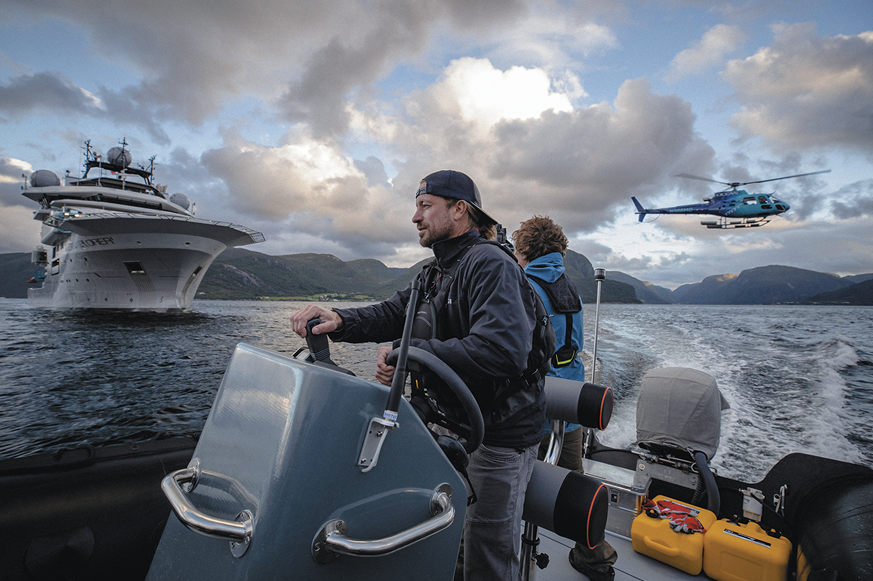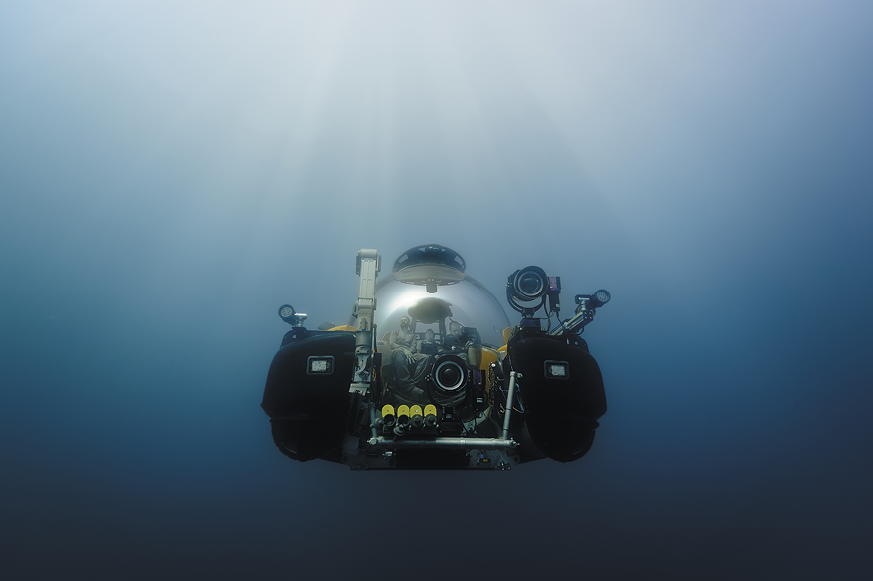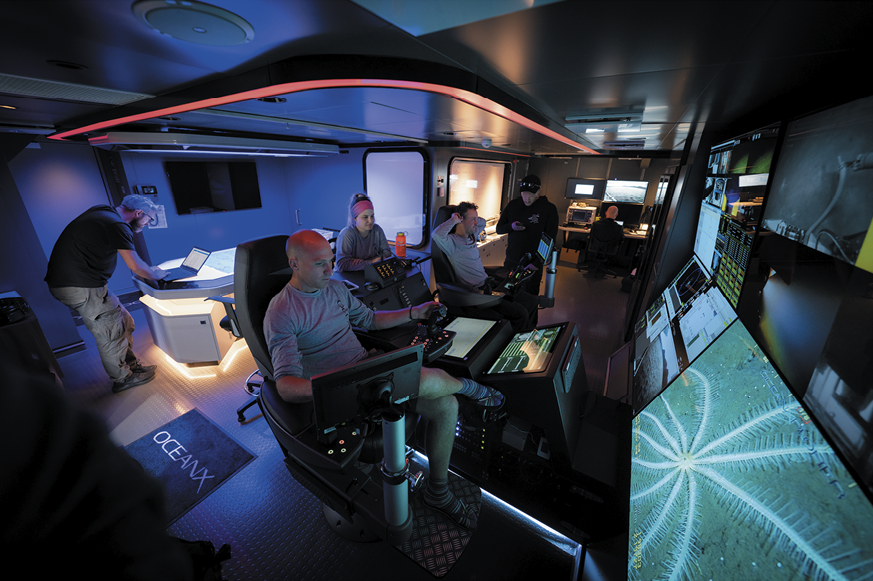- Home
- Media Kit
- MediaJet
- Current Issue
- Past Issues
- Ad Specs-Submission
- Reprints (PDF)
- Photo Specifications (PDF)
- Contact Us
- PRIVACY POLICY
- TERMS OF USE
![]()
ONLINE
![]()
ONLINE

Ocean Exploration
Editors’ Note
A global macro investor for more than 50 years, Ray Dalio founded Bridgewater Associates out of his two-bedroom apartment in New York City and ran it for most of its 47 years, building it into the largest and most successful hedge fund in the world. Dalio remains an investor and mentor at Bridgewater and serves on its board. He is also the long-running New York Times bestselling author of Principles: Life and Work; Principles for Dealing with the Changing World Order; and Principles for Navigating Big Debt Crises. He graduated with a BS in finance from C.W. Post College and received an MBA degree from Harvard Business School. He has been married to his wife, Barbara, for more than 40 years and has three grown sons and six grandchildren. He is an active philanthropist with special interests in ocean exploration and helping to rectify the absence of equal opportunity in education, healthcare, and finance.
Institution Brief
OceanX (oceanx.org) is on a mission to support scientists to explore the ocean and to bring it back to the world through captivating media. Uniting leading media, science, and philanthropy partners, OceanX utilizes next-gen technology, fearless science, compelling storytelling, and immersive experiences to educate, inspire, and connect the world with the ocean and build a global community deeply engaged with understanding, enjoying, and protecting the oceans. OceanX is an operating program of Dalio Philanthropies (daliophilanthropies.org), which furthers the diverse philanthropic interests of Dalio family members.

OceanXplorer with its helicopter and an exploration boat
Where did your interest and passion for the ocean develop?
When I was growing up, I watched Jacques Cousteau who was an ocean explorer that showed his explorations in the media. This got me into diving when I was in my 20s, and I then got my kids into diving which was amazing. Twelve years ago when I had enough money, I acquired an ocean exploration ship that was actually in the fleet that had supported Jacques Cousteau, and had manned submersibles that would go down 3,300 feet. I figured I could support scientists in their work and could tag along.
When I acquired the ship, one of my sons, Mark, was working at National Geographic at the time, and he also had a passion for diving and the ocean. He convinced me that we should show the work that scientists were doing in the media, so we did. We were the first to capture footage of the giant squid in its natural setting with The Discovery Channel in 2012, bringing fascinating footage of this incredible creature to the world. We have also filmed expeditions for BBC’s Blue Planet II on our ship and Sir David Attenborough’s award-winning series Great Barrier Reef. It was great so we got hooked.
We have now built a bigger ship to do it in a bigger way.
“If the ocean surface was clear and you could look down and see all that was there, of course we would be drawn to it. It needs to be explored, because if we do not understand it, it will not be taken care of.”
Is there an effective awareness and understanding of the impact the ocean has for humankind?
It is absolutely not well-understood. The ocean is the most important asset the world has – it’s bigger than everything else combined and has the greatest effect on our well-being. The ocean is 72 percent of the world’s surface, and the highest point on land is equal to the ocean’s deepest depth. So, this means that there is more than twice as much under the ocean surface as there is on all continents combined, and it is largely unexplored even though it is easy to explore. Just imagine if there was a continent that was unexplored – we would have to explore it. But the ocean is neglected. I estimate that 120 times as much money goes into space exploration as goes to ocean exploration. We see these oceanographic institutes starved for resources.
It’s also beautiful and thrilling. If the ocean surface was clear and you could look down and see all that was there, of course we would be drawn to it. It needs to be explored, because if we do not understand it, it will not be taken care of. For example, consider deep sea mining in this environment. This is like above-ground mining – to be handled well we need to know what is there. If we don’t, we will regret the consequences. So I find ocean exploration incredibly exciting and also incredibly important. I believe OceanX will be able to have a big impact on this by doing the work we are doing and by helping others do a lot more.
We have the ship, and as of September, we will have a series that is coming out with Disney and National Geographic called OceanXplorers that will be like a Jacques Cousteau series, just a modern-day version. We were able to work with Jim Cameron and the BBC team behind the Blue Planet series as producers so you can imagine how well it will be done. I think we are going to interest a lot of people through this, and we are working with governments and media groups to make sure we get results. I believe that you will see a lot more attention paid to the ocean in the next two years.

OceanXplorer’s manned submersible
How important has it been for OceanX to build partnerships to support its work?
It is critical. We have three considerations that guide us to what we will do with others, which we call three thumbs up. We support marine science so the first thumb up it has to get is that it produces great science. There is a science team that evaluates each project. The second is that it has to produce great media since we want to enthrall people. The third is how much it will cost, as I have allocated an amount of money that I am willing to lose each year, so I want to get the best bang for my buck. We go into partnerships with governments, media groups, and oceanographic institutes who are very excited to work with us.
How do you measure success in this effort?
We have key performance indicators (KPIs). First to measure the scientific impact we use the number of scientific papers and recognitions. Next to measure the media impact we look at the number of eyeballs watching the media we do. And to measure the broader impact we measure the number of dollars spent on ocean exploration relative to space exploration. I want to have a big impact on the amount of money being spent on ocean exploration. We also want to enhance legislation to manage and protect the ocean, so we measure that too.

OceanXplorer mission control room
Do you approach your philanthropic work in a similar way as you did your business efforts?
I think of it in a very similar way. When you are in a business, to measure success one uses financial return which makes it easy – money in, money out. This is very straightforward. In my philanthropic work, I look at the cost per KPI. While this may not be as clear, it is essential to take this similar approach.
Do you get the same fulfillment from your philanthropic work as you did in building your investment firm?
Absolutely. While I live the game of making money in the markets, the question is what is the money for. I think that sometimes people get in the habit of paying so much attention to money made that they can lose sight of what the money is for. I love having a big beneficial impact doing what I love, and that is what I am doing at OceanX with my son and a bunch of great people.
How special is it to be able to work at OceanX with your son, Mark?
Imagine it – to be able to do this with him, and to also know that he will take it beyond me. It’s wonderful.![]()